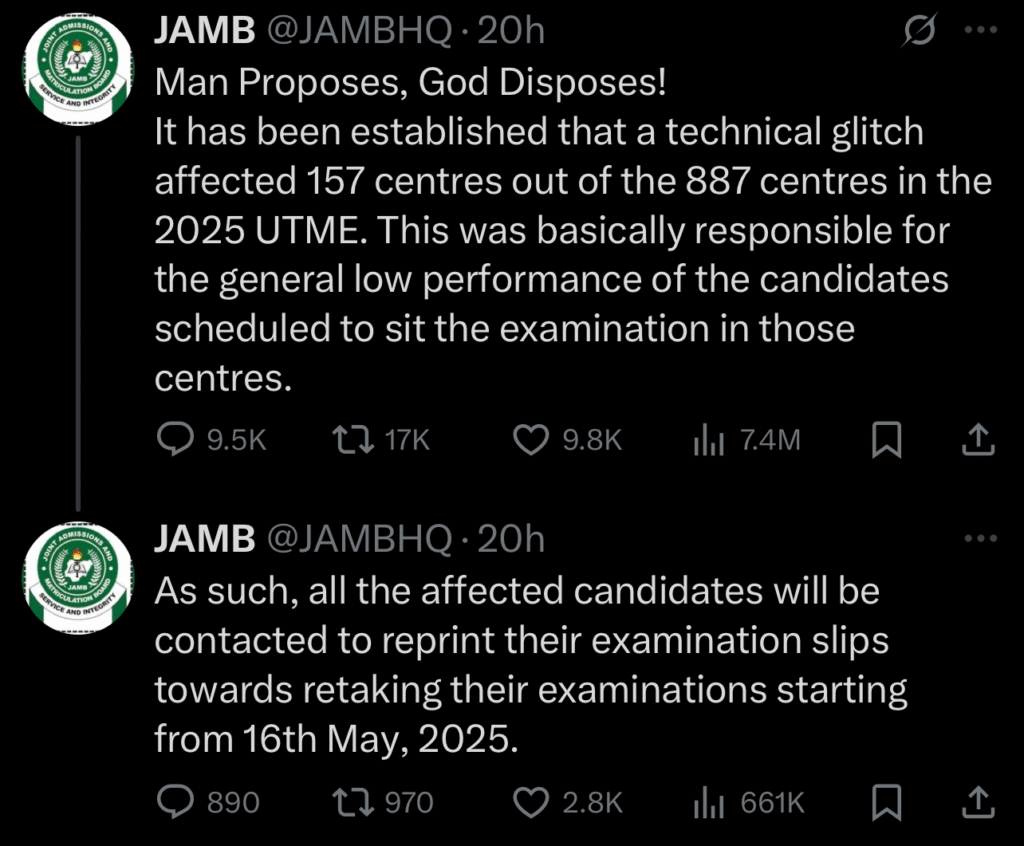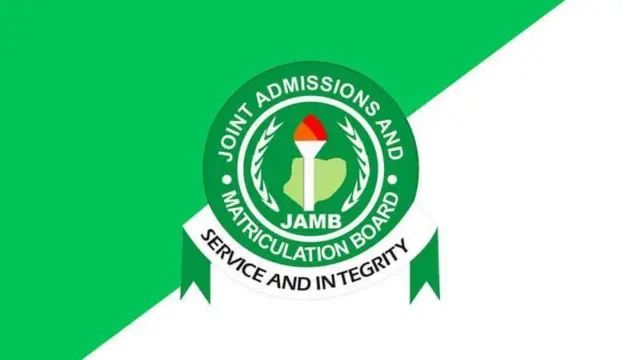In an extraordinary reversal, the Joint Admissions and Matriculation Board (JAMB), Nigeria’s national tertiary exam body, has formally admitted to a significant technical error that led to the mass failure of students in the 2025 Unified Tertiary Matriculation Examination (UTME). The fallout has prompted growing public pressure not only for transparency, but now for resignations at the highest level of the institution.
The scandal centres around the results of nearly 400,000 candidates across 157 centres in Lagos and the South-East, whose performances were severely distorted due to a critical software patch omission. In a stunning press conference, JAMB’s Registrar, Professor Ishaq Oloyede, accepted full responsibility and apologised, citing the error as a failure of the board’s service providers. But critics argue that the buck stops with leadership.
“It is not enough to apologise. This was a catastrophic breach of public trust,” said Alex Onyia, CEO of Educare and one of the most vocal advocates for accountability. “An exam that determines the future of two million young Nigerians cannot be treated with the casual grace of a software patch gone wrong. Heads must roll.”
A Statement That Sparked Outrage
In what many have labelled a tone-deaf headline, JAMB titled its official press statement: “Man Proposes, God Disposes.” The press conference attempted to position the error as an unfortunate anomaly despite months of quality assurance.

Oloyede admitted that despite rigorous simulations and in-house testing, the new exam delivery system failed in two critical regions. He described the incident as an “easily avoidable error by one or two persons,” prompting further outrage from civil society leaders who see it as an attempt to deflect institutional blame.
The Technical Truth: What Really Happened
According to a detailed independent technical review led by the Educare Technical Team, the failure stemmed from a rollout oversight involving the shuffling and scoring logic applied during CBT exams. While the new “source-based” analysis and randomised question sequencing were successfully implemented in most zones, the LAG server cluster—responsible for Lagos and the South-East, ran on outdated architecture. This mismatch led to a systemic failure in how candidates’ answers were processed and scored.
Educare analysed over 15,000 real candidate records and confirmed the technical error was neither theoretical nor isolated: more than 14,000 of those affected were directly linked to the unpatched zones.

A Nation Betrayed
This admission has shaken confidence in one of Nigeria’s most powerful educational institutions. While JAMB has announced that affected candidates will be offered the opportunity to retake the exam, critics insist that this gesture, though necessary, is insufficient.
“You cannot demand accountability from students and offer none from the leadership,” said Onyia. “This goes beyond a retake. It is a credibility crisis.”
JAMB’s earlier refusal to release full candidate-level score breakdowns had already raised red flags among education advocates and parents. Now, its admission confirms what many suspected: the 2025 UTME was flawed at the core—and people in power knew or should have known.
Pressure Builds for Resignation
Calls for resignation are growing. Activists, education leaders, and parents are demanding that Professor Oloyede step down, citing institutional failure, lack of proper oversight, and the mishandling of public communication.
While JAMB has apologised and promised reforms, critics argue that reforms without accountability only entrench incompetence.
“The ethical thing to do is resign,” said one prominent education reform advocate. “Trust has been broken. And when trust is broken at this scale, leadership must give way.”
What’s Next?
With rescheduled exams looming and national confidence at a historic low, JAMB faces an uphill battle to restore its reputation. Meanwhile, Educare and its founder, Alex Onyia, have vowed to continue monitoring the board’s reforms, pushing for independent audits, and leading legal action where necessary.
For the 379,997 affected students and their families, the question is no longer about what went wrong, it’s about whether those responsible will be held to account.
















